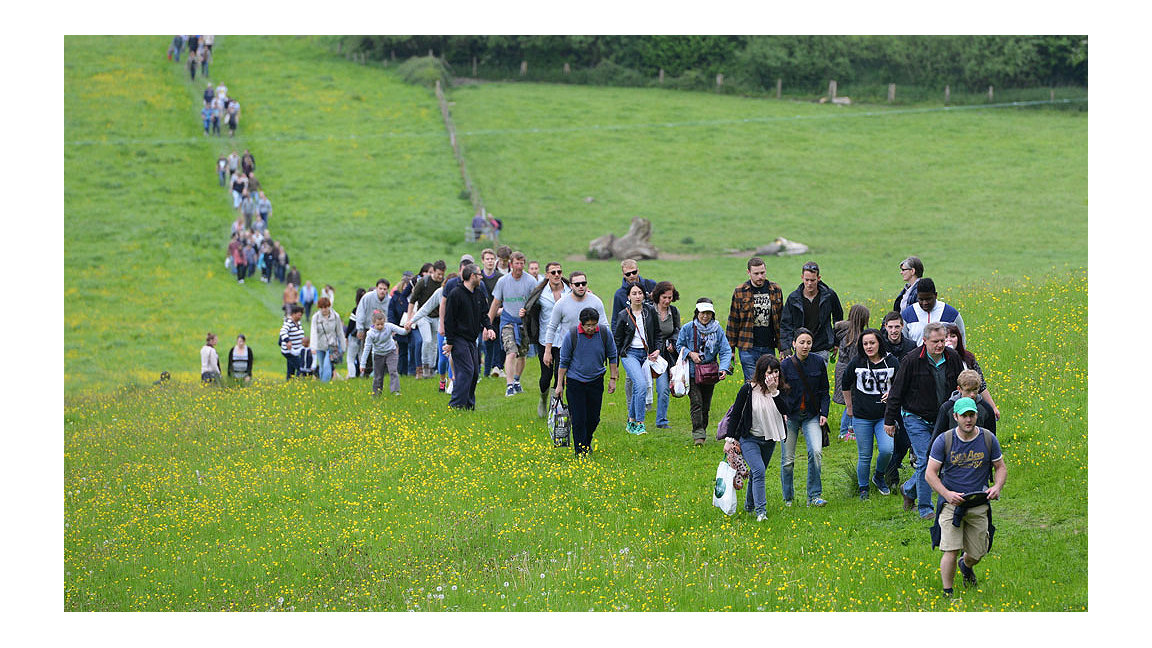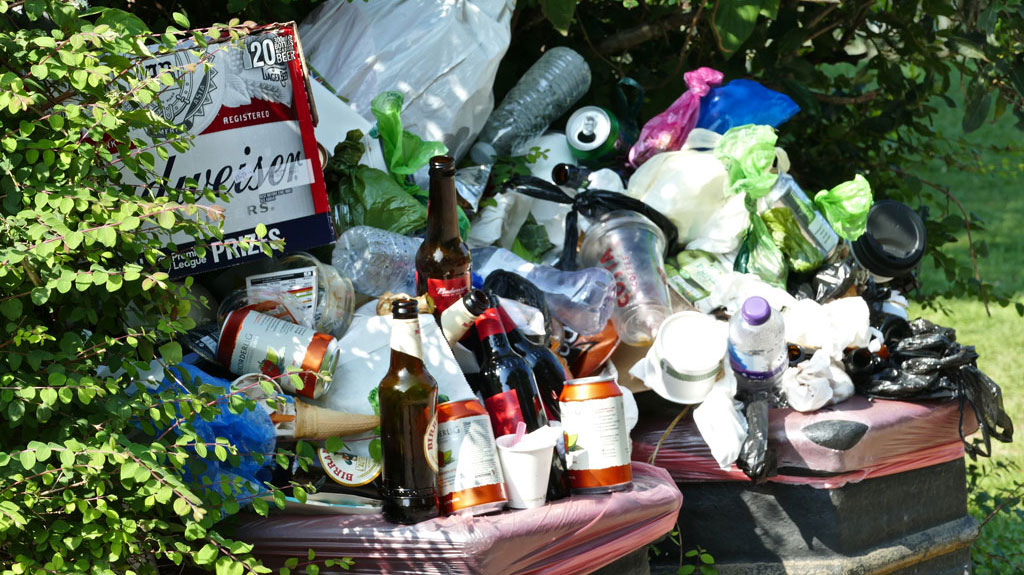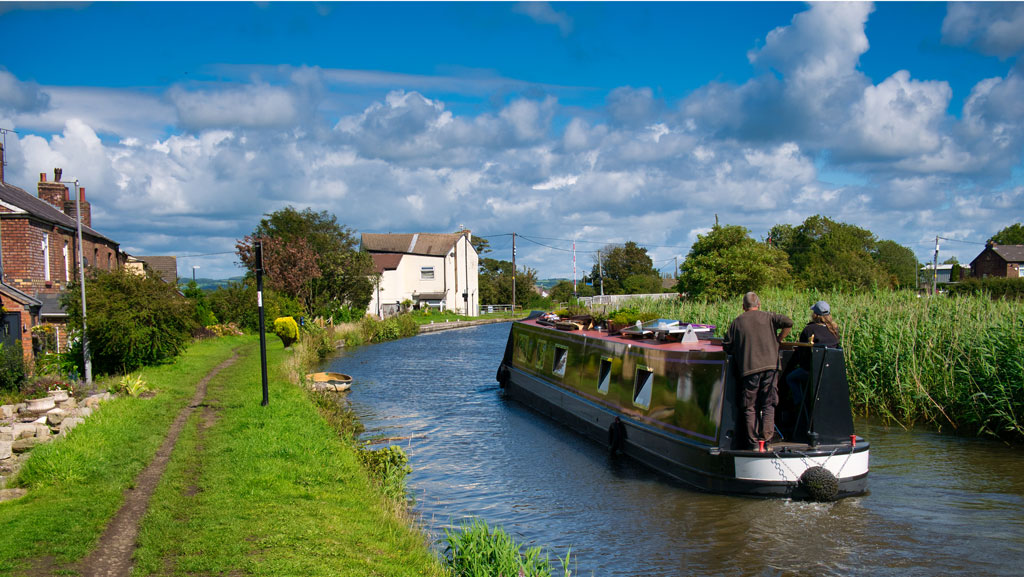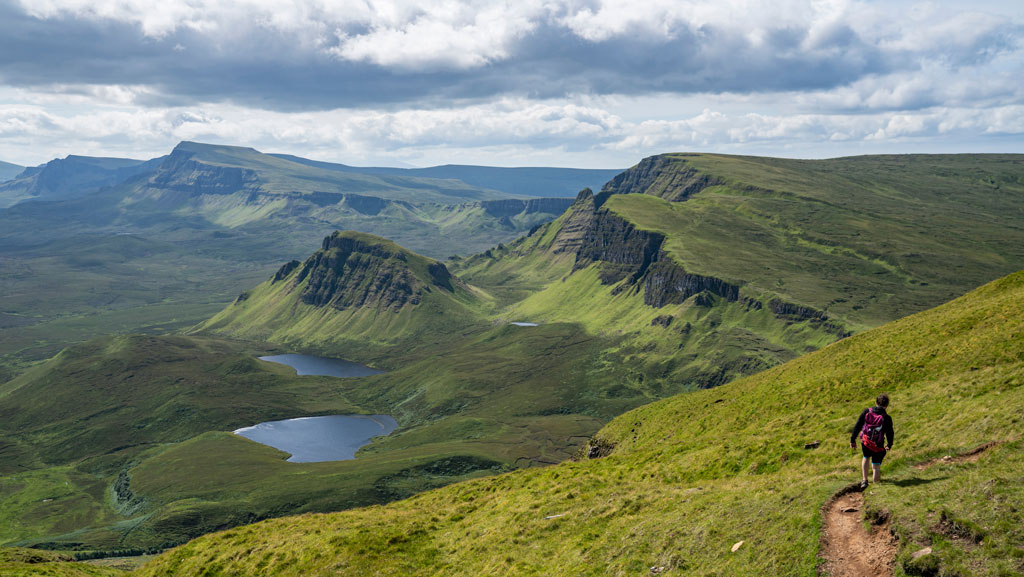
Brockworth, Gloucestershire. Photographer: 1000 Words, Shutterstock
The health benefits of exposure to nature have long been recognised, and visits to the countryside have been greatly valued by locked-down Brits. Once free to travel over the summer, they chose rural destinations for their breaks rather than cities, where COVID-19 is reportedly more prevalent.
- 85% of adults surveyed agreed that “being in nature makes me very happy”, with 74% taking more time to notice and engage with everyday nature, such as listening to birdsong or noticing butterflies
- 41% of adults reported that “nature and wildlife is more important than ever to my well-being” since the pandemic began
- when surveying the types of “green and natural spaces they visited in the month of May”, many members of the public said they frequently visited rural areas as Figure 1 shows.
Impacts of the exodus to rural areas
The countryside’s popularity has, however, resulted in clogged roads, emergency incidents on popular stretches of coastline, a rise in travel scams – such as taking bookings and payment online for non-existent accommodation in desirable locations – and soaring accommodation prices.
Residents of inland destinations such as Bourton-on-the-Water in the Cotswolds and coastal resorts such as Brighton, Bournemouth and many parts of Cornwall, as well as national parks, were traumatised by the litter and pollution left by visitors. Many of these rural destinations have older populations, who felt at risk from younger visitors and their disregard for social distancing.


For instance, one Whitstable resident told The Independent that the town had become “‘lawless’ – a place for people to visit at weekends and do what the hell they want”. She mentioned some of the “shocking effects” of the boom in domestic holidays, including “defecation in public places, unacceptable amounts of rubbish left on the beach – which has attracted vermin – drug and drink abuse, and violence”.
This prompted many local authorities to issue public warnings, and the tourism body for Blackpool even rebranded itself as “Do Not Visit Blackpool” in an attempt to discourage visitors. Brighton & Hove City Council also raised concerns about the number of people in the city, tweeting: “If you’re not already here, please don’t travel to the city today. Large numbers make it impossible to maintain physical distancing.”
However, businesses that rely on tourism were relieved to recoup some of the losses caused by the fall in international visitor numbers and revenues earlier in the summer.
While demand for self-catering accommodation and hotels has risen during the pandemic, there has been even greater interest in camping. As this is more affordable and potentially safer from COVID-19, tent sales rose 126% between March and August 2020 compared to the same period in 2019, according to price comparison service PriceSpy. However, this popularity has seen many official campsites booked out for summer, leading some to try their hand at so-called wild camping.

Trespass: an ancient debate
During national lockdown, the highlight for many was the opportunity to access the countryside using the rights of way in their area. However, this access might be under threat from legislation to combat any unauthorised encampments in England and Wales, which was originally proposed in the Conservative election manifesto last year, and was due to go before Parliament at the time of writing but may well be delayed due to the current crisis.
This change to the rules on trespass would make it a criminal rather than a civil offence. The charity Ramblers has expressed concern that this could erode the public’s right to access the countryside, which is critical to the nation’s mental and physical well-being at a time when demand is rising. Wild camping would certainly become illegal under this legislation.
As a civil offence, trespass presently requires landowners to bring their own case against an offender in court, and police do not become involved unless any damage has been done – in which case the charge of criminal damage could be brought.
Currently the public has legal access to 8% of the land in England, and 3% of waterways. There is no right to roam in England, whereas Scotland enshrines in law the right of people to enjoy wild spaces, with their open-access legislation allowing free range across the countryside unless a landowner has good reason to prevent this.

Narrowboat in Lancashire. Photographer: Alan Morris, Shutterstock

Countryside recreation organisations are concerned that criminalising trespass will restrict law-abiding citizens’ access to the countryside. Nick Hayes’ recent The Book of Trespass argues strongly for greater access to the countryside and celebrates the mass trespass of Kinder Scout in 1932, which changed political attitudes and resulted in the national parks and Access to the Countryside Act 1949.
However Country Land and Business Association members are strongly in favour of the proposed legislation, as they have struggled to deal with Gypsy and Traveller encampments under the current law of trespass. The intention of the new legislation was to enable the removal of Gypsy and Traveller encampments but the effect will be to make any trespass by anyone, a criminal offence instead of a civil offence. Previously the trespasser had to cause criminal damage to become liable as a criminal. Its timing is now unfortunate – and could prove divisive when the general public is in greater need of access to the countryside and contact with nature.
Diversifying to meet demand
- Demand for access to the countryside from urban populations has been growing twice as fast as mainstream tourism because of increasing interest in well-being and healthy living, even before the pandemic. These tourists are generally high-spending, profitable customers. Doctors are also beginning to prescribe their patients time to get back to nature in the countryside. Farms are perfectly placed to provide a range of activities that promote well-being, that in some cases build on the traditional agricultural business.
- According to the Natural England survey, many parents want their children to spend less time indoors on sedentary, screen-based activities and instead learn more about nature. This is an opportunity to develop enterprises for young people and families with children.
- A pre-pandemic survey by Booking.com found that 86% of respondents would be willing to spend time on activities that counterbalance the environmental impact of their stay. Consumers are increasingly aware of climate change and the need to reduce their carbon footprint. Farms have the resources and natural capital to create environmentally friendly diversification projects – such as solar farms, renewable energy crops, environmental land management schemes and restoring footpaths or cycle routes in national parks or on National Trust land – on which tourists could work.
- Millennials tend to spend their income on experiences and making memories rather than accumulating possessions, with market research firm Mintel reporting that two-thirds of adults express such a preference. This means farms could cash in on their resources and offer adventure and experiences such as quad biking, obstacle trails, forest schools, festivals or care farms.
- The pet-care market is growing, with dog ownership for instance on the rise, so farmers may be able to provide a secure dog-walking area, kennels or other dog-friendly accommodation, or catteries.
- There is presently less competition for tourism from overseas destinations because of travel restrictions and the weak exchange rate resulting from Brexit and the UK’s poor handling of the pandemic.
- Job losses and economic dislocation and recession caused by the pandemic will also increase demand for domestic holidays.
- Interest rates are presently low, making investments cheaper to finance.
- Consumer behaviour is changing because of COVID-19. Figure 2 shows increases in particular trends since March, as reported in the People and Nature Survey for England. These offer landowners an opportunity to develop enterprises that can meet this demand: for instance, forest schools, green gyms, and fields for dog owners to exercise their pets.
“Farmers can help meet rising demand from urban holidaymakers by offering getaways that are safe in terms of both the law and public health”
Savills records in its Spotlight: Farm Diversification research that 66% of farms had already diversified by 2018/19, with alternatives to agriculture providing 22% of total farm income in that financial year. Table 1, showing DEFRA’s farm business survey for the same period, breaks down diversifications into categories and indicates that only 19% of these are in tourist-related activities – so the market is not saturated.
| No of farms | % of farms | Total FBI for these farms (£m) | Income of diversified enterprise (£m) | Average enterprise income (a)(£m per farm) | |
| Farm business income (including diversification) | 57,100 | 2,876 | |||
| Farms which engage in: | |||||
diversified enterprises (all kinds) |
37,400 | 65% | 2,287 | 740 | 19,800 |
letting buildings for non-farm use |
25,200 | 44% | 1,753 |
454 | 18,000 |
processing/retailing of farm produce (b) |
5,800 | 10% | 353 | 89 | 15,300 |
sport and recreation |
7,100 | 12% | 540 | 37 | 5,200 |
tourist accommodation and catering |
3,700 | 7% | 216 | 33 | 9,000 |
solar energy |
11,600 | 20% | 918 | 31 | 2,700 |
other sources of renewable energy (c) |
5,800 | 10% | 487 | 56 | 9,600 |
other diversified activities |
5,900 | 10% | 318 | 39 | 6,600 |
Table 1. Farm income from diversified enterprises, England, 2018/19
| No of farms | % of farms | Total FBI for these farms (£m) | Income of diversified enterprise (£m) | Average enterprise income (a)(£m per farm) | |
| Farm business income (including diversification) | 57,100 | 2,876 | |||
| Farms which engage in: | |||||
diversified enterprises (all kinds) |
37,400 | 65% | 2,287 | 740 | 19,800 |
letting buildings for non-farm use |
25,200 | 44% | 1,753 |
454 | 18,000 |
processing/retailing of farm produce (b) |
5,800 | 10% | 353 | 89 | 15,300 |
sport and recreation |
7,100 | 12% | 540 | 37 | 5,200 |
tourist accommodation and catering |
3,700 | 7% | 216 | 33 | 9,000 |
solar energy |
11,600 | 20% | 918 | 31 | 2,700 |
other sources of renewable energy (c) |
5,800 | 10% | 487 | 56 | 9,600 |
other diversified activities |
5,900 | 10% | 318 | 39 | 6,600 |
Source: Table C: Income from diversified enterprises England 2018-19, Farm Business Survey, England
Self-catering accommodation such as glamping, camping, caravanning, yurts and lodges have all experienced rising demand during the pandemic. Such facilities enable social distancing, allowing visitors to stay in their bubble and control the cleanliness of their environment.
Mature woodland can also provide a backdrop for income-generating recreational activities such as glamping, high-wire experiences and forest schools, and the Forestry Commission offers grants for business developments.
Finance for diversification
In England, it was possible until 17 February to apply for farm diversification grants from the European Agricultural Fund for Rural Development, with the Rural Payments Agency and local enterprise partnerships (LEPs) working together to assess applications and channel the finance. These grant-funded projects created and protected jobs and economic growth in the English countryside, with tourism specifically targeted as an area of diversification with scope to grow. But these grants are now closed to new applicants, so landowners seeking help with diversifications should approach their LEP. The devolved nations each has its own rural development programme.
In summary, there is an opportunity for landowners and farmers to open up their land for various outdoor schemes to hard-pressed urban dwellers without overwhelming local residents, while benefitting from the trend for domestic holidays.
